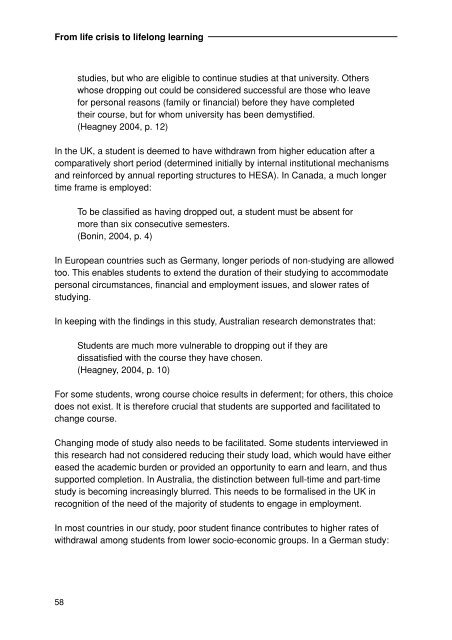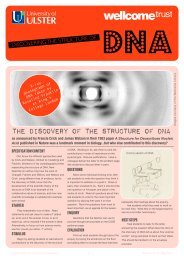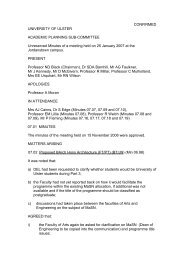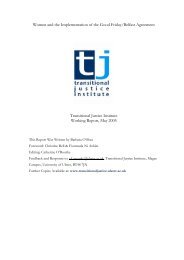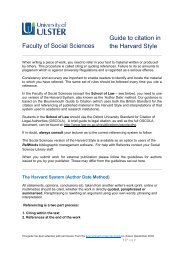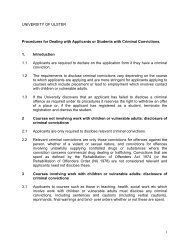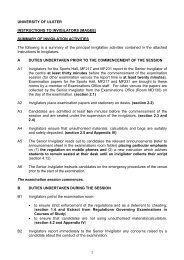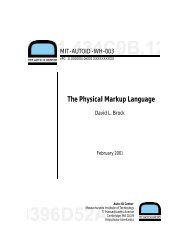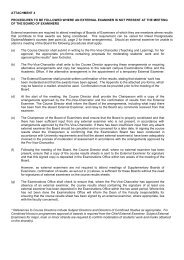From life crisis to lifelong learning: Rethinking working-class 'drop out'
From life crisis to lifelong learning: Rethinking working-class 'drop out'
From life crisis to lifelong learning: Rethinking working-class 'drop out'
Create successful ePaper yourself
Turn your PDF publications into a flip-book with our unique Google optimized e-Paper software.
<strong>From</strong> <strong>life</strong> <strong>crisis</strong> <strong>to</strong> <strong>life</strong>long <strong>learning</strong><br />
58<br />
studies, but who are eligible <strong>to</strong> continue studies at that university. Others<br />
whose dropping out could be considered successful are those who leave<br />
for personal reasons (family or financial) before they have completed<br />
their course, but for whom university has been demystified.<br />
(Heagney 2004, p. 12)<br />
In the UK, a student is deemed <strong>to</strong> have withdrawn from higher education after a<br />
comparatively short period (determined initially by internal institutional mechanisms<br />
and reinforced by annual reporting structures <strong>to</strong> HESA). In Canada, a much longer<br />
time frame is employed:<br />
To be <strong>class</strong>ified as having dropped out, a student must be absent for<br />
more than six consecutive semesters.<br />
(Bonin, 2004, p. 4)<br />
In European countries such as Germany, longer periods of non-studying are allowed<br />
<strong>to</strong>o. This enables students <strong>to</strong> extend the duration of their studying <strong>to</strong> accommodate<br />
personal circumstances, financial and employment issues, and slower rates of<br />
studying.<br />
In keeping with the findings in this study, Australian research demonstrates that:<br />
Students are much more vulnerable <strong>to</strong> dropping out if they are<br />
dissatisfied with the course they have chosen.<br />
(Heagney, 2004, p. 10)<br />
For some students, wrong course choice results in deferment; for others, this choice<br />
does not exist. It is therefore crucial that students are supported and facilitated <strong>to</strong><br />
change course.<br />
Changing mode of study also needs <strong>to</strong> be facilitated. Some students interviewed in<br />
this research had not considered reducing their study load, which would have either<br />
eased the academic burden or provided an opportunity <strong>to</strong> earn and learn, and thus<br />
supported completion. In Australia, the distinction between full-time and part-time<br />
study is becoming increasingly blurred. This needs <strong>to</strong> be formalised in the UK in<br />
recognition of the need of the majority of students <strong>to</strong> engage in employment.<br />
In most countries in our study, poor student finance contributes <strong>to</strong> higher rates of<br />
withdrawal among students from lower socio-economic groups. In a German study:


